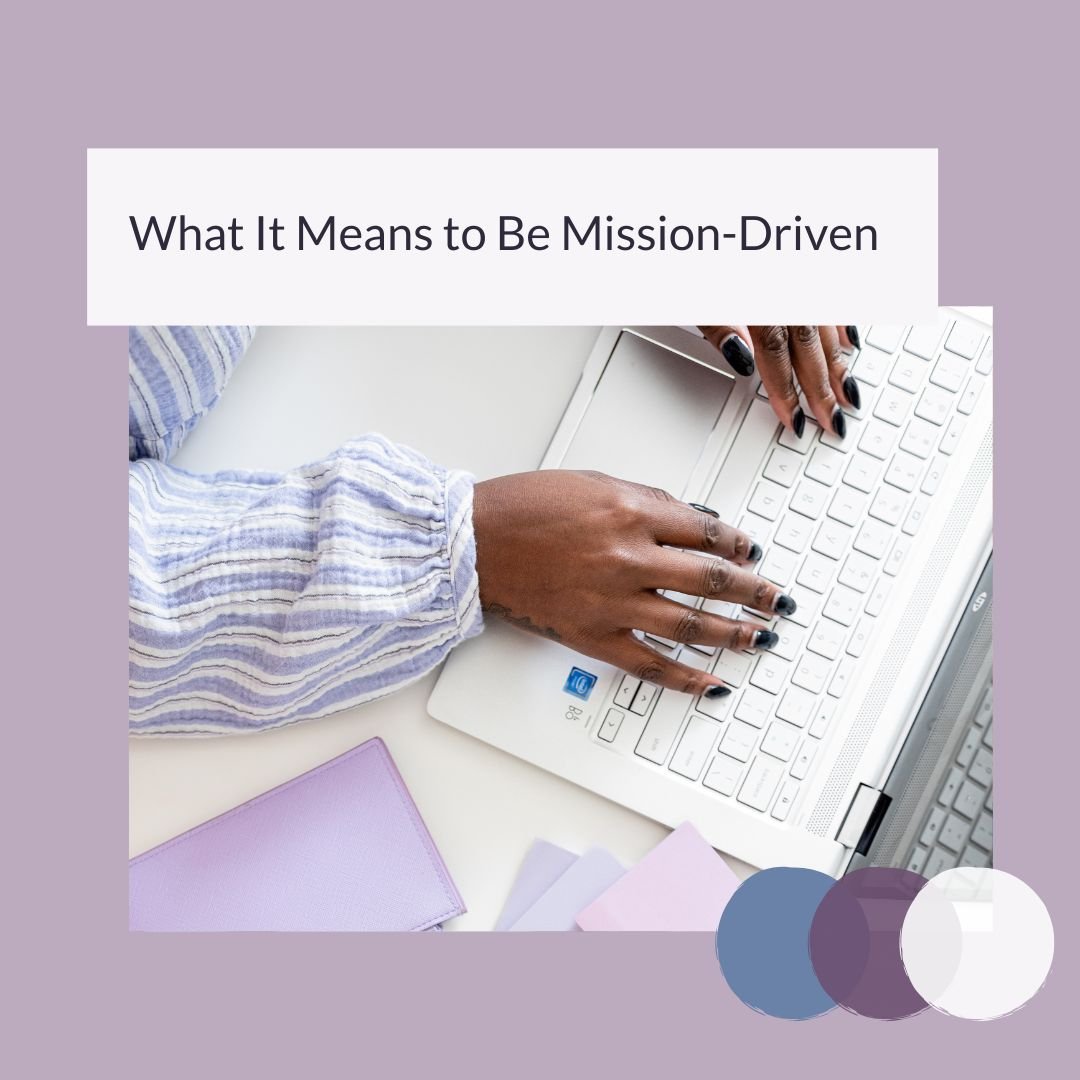What It Means to Be Mission-Driven
Sometimes people ask what it means when we say that we work with mission-driven professionals. It may not be what you think.
When you're mission-driven, you see your work as a way to share your skills in order to make a difference.
Work isn't just a J-O-B or a pathway to advance—it's an opportunity to express yourself and make an impact that is meaningful to you.
Notice that I said "an impact that is meaningful to you" rather than "a meaningful impact"—they might seem like the same thing, but they're actually quite different.
My client Jenna* (client names changed throughout this article) works at a nonprofit organization that develops neglected spaces in local communities. The organization makes an important and meaningful impact—but my client is feeling disconnected and disengaged because it's not her purposeful work.
Key Idea #1: Mission-driven work isn't about your organization's purpose—it's about yours.
When we dug into it, Jenna's idea of purposeful work is about improving cities at a policy level. She longs for a seat at the table for high-level conversations, culling through data rather than acting as the boots on the ground.
That's why her organization's work is meaningful, but not necessarily meaningful to her. On paper, her job seems impactful. But she's not feeling the satisfaction for her true impact.
Taking the time to uncover your own sense of purpose is key to finding aligned work that gives you a true sense of fulfillment.
↪︎ Ask yourself: For you, what defines meaningful or worthwhile work?
Key Idea #2: Mission-driven work isn't about a charity or nonprofit cause.
My client Eve works for an energy company, where she builds the capacity of diverse suppliers to get more contracts in the hands of minority-, women-, and veteran-owned businesses.
Nina leads a for-profit food company, implementing fair trade and sustainable practices with avocado farmers in Central America.
Calvin manages the supply chain team of a biotech company, delivering treatments to patients as efficiently and cost-effectively as possible.
Micah is in higher education, where he advises student leaders on organizing events and thus builds their capacity as leaders.
Kiara consults with municipalities to improve education outcomes for high school students.
None of these clients work in a traditional nonprofit environment, yet they're carrying out work that works towards a greater good. In fact, Kiara has worked in a for-profit educational technology company, a city department of education, a policy institute, and a philanthropic foundation—all aligned with the same purpose of advancing educational equity.
What separates these types of organizations is their tax status with the IRS, not the morality of their work. (Check out my free workbook on The Spectrum of Mission-Driven Work for more ideas of what meaningful work beyond nonprofits can look like.)
↪︎ Ask yourself: What are three very different settings in which I can carry out my meaningful work?
The next time you think that mission-driven work is limited to mission-driven organizations or nonprofit professionals, think again.
You can carry out work that is meaningful to you in a variety of different settings—and thus do your unique part to contribute to the greater good.

